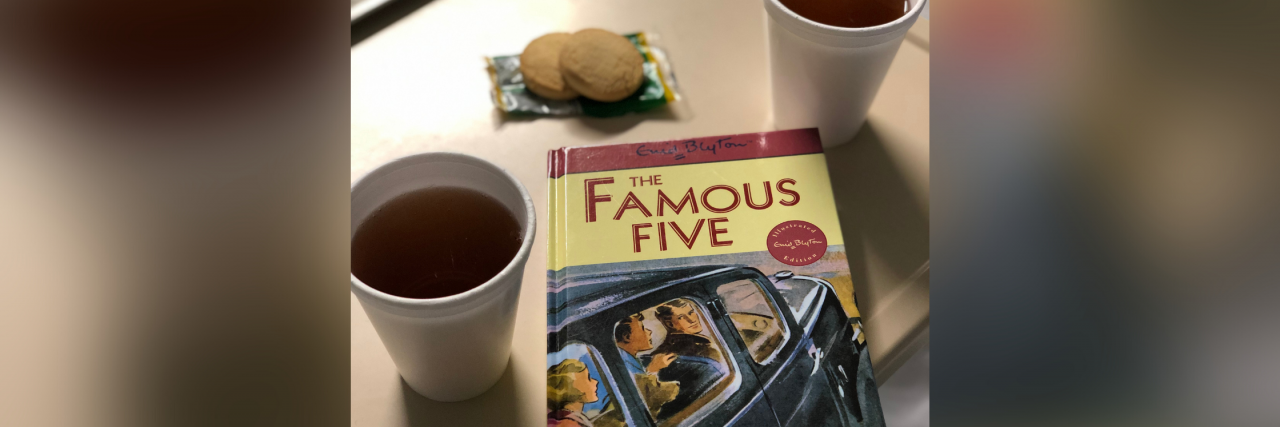As a chronic illness patient myself (lupus, ITP, Hashimoto’s, fibromyalgia), I have learned a few tricks about making hospital stays bearable. Let’s just say thank God for that because my 10-year-old is in the hospital right now with a terrible ulcerative colitis flare.
Life for a 10-year-old should be all about playdates, enjoying food, and creating in Minecraft. It should be consumed by learning and laughing. But, as many of us know, the chronic illness life can take a toll on the most resilient of adults, and it can also be equally challenging (albeit in different ways) for children.
Creating rhythms of familiarity has been helpful for us in our hospital stays. My hospital rituals help keep me grounded, encouraged, and most importantly, help me pass the time to be able to get through each day.
Hospital rituals for me look like making sure I take a walk each day to my favorite coffee cart. It means packing the same pink pin-striped toiletries bag that my friend Heidi sewed. It means being sure that I take my big hoop earrings and my favorite book with me.
For my children, it looks like a continuation of our homeschooling and rhythms from our life. For my son, it starts even on the long drive to the hospital. We always listen to an audiobook (we have them ready in the car). This trip, it was Roald Dahl’s “The Twits.” Our in-hospital ritual looks like packing and playing a particular card game we love. It means making sure we have his special monkey toy in his bag. It means being able to log onto the Minecraft server so he and his sister can play remotely and feel connected. It also means grabbing a Famous Five or Secret Seven read-aloud and enjoying that with a cup of tea before bed. It means making sure we whisper our “I love you’s” still in the dark once we have turned out the lights and there’s nothing but the nurse call light left illuminating the darkness of the room.
It might not sound like much, but these little rituals help remind us of the familiar, which in turn helps us remember who we are. And if we can do that, we can manage one moment by one moment, which in long hospital stays is a real game-changer.

